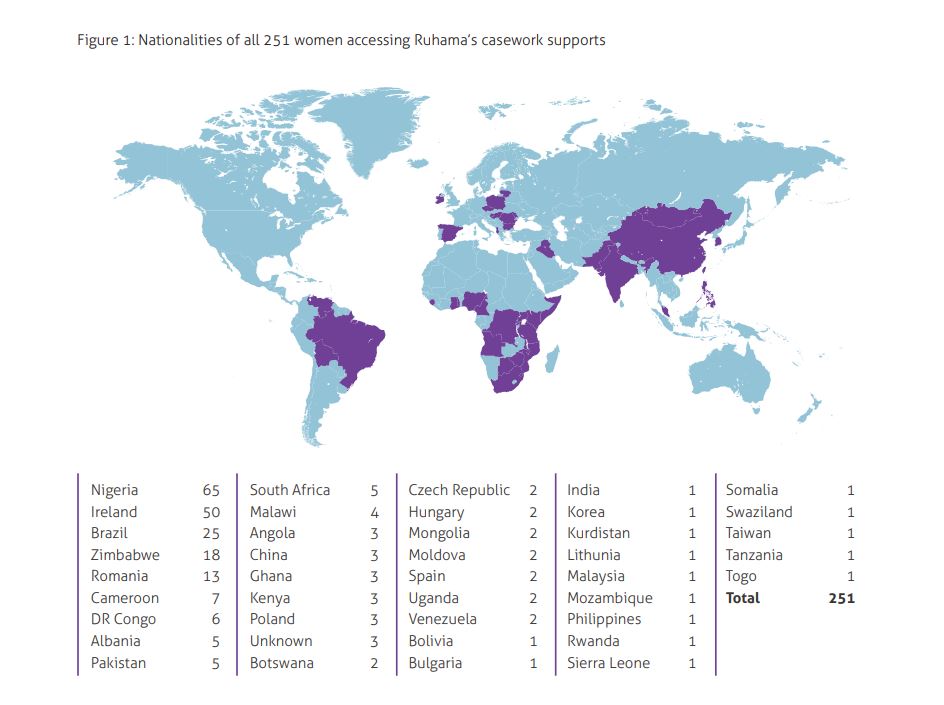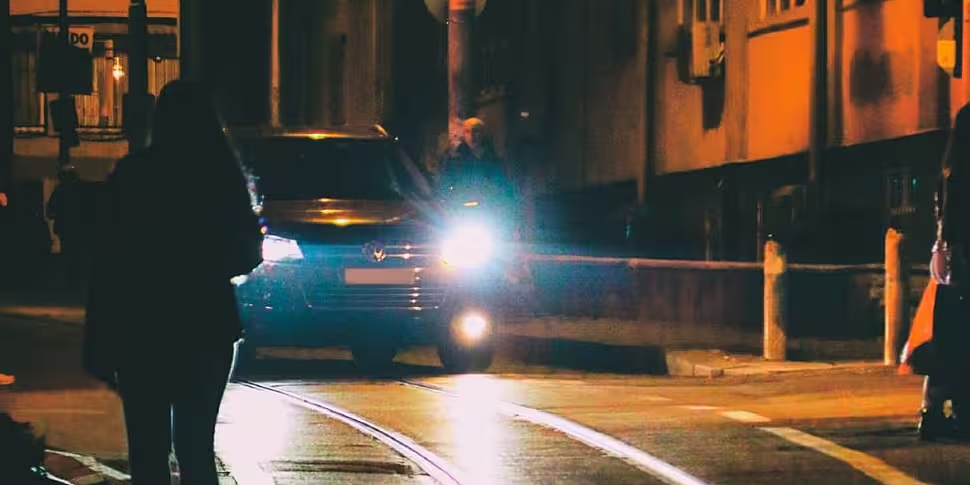Ruhama, Ireland's only dedicated non-governmental organisation supporting women affected by prostitution and sex trafficking, has said it provided support to 313 women last year.
Launching its 2018 annual report on Tuesday, it said it assisted women of 40 nationalities - including 122 victims of trafficking from 29 countries.
While this year also marks three decades of the organisation supporting some of the most vulnerable and marginalized women in Ireland.
The 313 women connecting with Ruhama last year were provided with services to meet their needs - including emergency response, advocacy and accompaniment, education and job-seeking programmes, housing and social welfare supports and counselling.
Outlining shifts that have occurred in the Irish sex trade over 30 years, the charity has emphasised how increased globalisation and changes in migration flows have resulted in a "highly organised, transnational and criminalized sex trade".
 Source: Ruhama
Source: Ruhama"While there is still a very vulnerable cohort of women in on-street prostitution, the majority of individuals in prostitution that Ruhama meets are based indoors in brothels, apartments, hotels and massage parlours", it said.
One thing the charity said has not changed is "the inherent harm and violence of prostitution."
"The sex trade is still predominantly controlled by organised criminals, and fuelled by the demand for paid sex that is driven by 8% of Irish men."
Sarah Benson, Ruhama CEO, said: "The good news is that we have supported literally thousands of women in very difficult situations over 30 years.
"So many of them have had successful outcomes and been able to move past the trauma of sexual exploitation.
"The bad news is that some have not survived, and the sex trade is still alive and thriving in Ireland. Unfortunately our work is still so necessary and the demand for our services is only increasing".
"We are confident that effective implementation of the Criminal Law (Sexual Offences) Act 2017 can make Ireland a hostile market for pimps and those sex traffickers who are importing young migrant women solely to profit from their exploitation, while betraying their hopes for a better life", she added.
This legislation decriminalises the individual in prostitution, and criminalises the so-called 'sex-buyer' in recognition of the role they play in perpetuating sexual exploitation.
While there has been some progress since March 2017 when the law took effect, Ruhama is calling on urgent further action.
"We have been informing women on the streets that they are no longer criminalised and this has been very positive," Ms Benson explained.
"We see cases where they are more likely now to report crimes against them to Gardaí without fear.
"We have also seen some good examples of individuals reporting crimes committed in indoor settings through pro-active Garda liaisons and this is to be encouraged.
"The Gardaí are given a strong signal by the law to ensure they take a victim centred approach towards individuals in prostitution rather than a punitive one".









